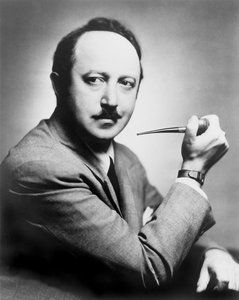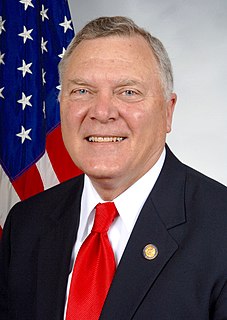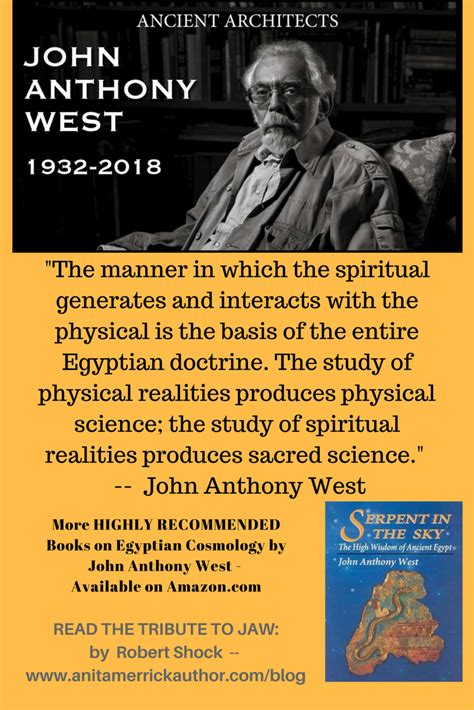Top 1200 Science And Philosophy Quotes & Sayings
Explore popular Science And Philosophy quotes.
Last updated on April 14, 2025.
My social philosophy may be said to be enshrined in three words: liberty, equality and fraternity. Let no one, however, say that I have borrowed by philosophy from the French Revolution. I have not. My philosophy has roots in religion and not in political science. I have derived them from the teachings of my Master, the Buddha.
When people ask me what philosophy is, I say philosophy is what you do when
you don't know what the right questions are yet. Once you get the questions
right, then you go answer them, and that's typically not philosophy, that's
one science or another. Anywhere in life where you find that people aren't
quite sure what the right questions to ask are, what they're doing, then,
is philosophy.
When I got to college, I planned to be a math major, and, in addition to signing up for some math courses, I decided to take some philosophy. Quite by chance, I took a philosophy of science course in which the entire semester was devoted to reading Locke's Essay. I was hooked. For the next few semesters, I took nothing but philosophy and math courses, and it wasn't long before I realised that it was the philosophy that really moved me.
This is an extremely ambitious book. In addition to science and mathematics, Byers brings to bear insights from literature, philosophy, religion, history, anthropology, medicine, and psychology. The Blind Spot breaks new ground, and represents a major step forward in the philosophy of science. The book is also a page-turner, which is rare for this topic.
To mix science up with philosophy is only to produce a philosophy that has lost all its ideal value and a science that has lost all its practical value. It is for my private physician to tell me whether this or that food will kill me. It is for my private philosopher to tell me whether I ought to be killed.
Once upon a time, science, philosophy, and theology were disciplines largely undifferentiated from one another, and proving the existence of God was a fairly commonplace intellectual exercise. But as the scientific method became increasingly refined, particularly through the nineteenth century, science and religion grew apart.
I would say to anybody who thinks that all the problems in philosophy can be translated into empirically verifiable answers - whether it be a Lawrence Krauss thinking that physics is rendering philosophy obsolete or a Sam Harris thinking that neuroscience is rendering moral philosophy obsolete - that it takes an awful lot of philosophy - philosophy of science in the first case, moral philosophy in the second - even to demonstrate the relevance of these empirical sciences.
My position is a naturalistic one; I see philosophy not as an a priori propaedeutic or groundwork for science, but as continuous with science. I see philosophy and science as in the same boat--a boat which, to revert to Neurath's figure as I so often do, we can rebuild only at sea while staying afloat in it. There is no external vantage point, no first philosophy.
..I sought a world philosophy-or an integral philosophy-that would believably weave together the many pluralistic contexts of science, morals, aesthetics, Eastern as well as Western philosophy, and the world's great wisdom traditions. Not on the level of details-that is finitely impossible; but on the level of orienting generalizations: a way to suggest that the world really is one, undivided, whole, and related to itself in every way: a holistic philosophy for a holistic Kosmos, a plausible Theory of Everything.
Philosophy is the science of estimating values. The superiority of any state or substance over another is determined by philosophy. By assigning a position of primary importance to what remains when all that is secondary has been removed, philosophy thus becomes the true index of priority or emphasis in the realm of speculative thought.
Certain issues in philosophy of science (having to do with observation and the definition of a theory's empirical import) had beenmisconstrued as issues in philosophy of logic and of language. With respect to modality, I hold the exact opposite: important philosophical problems concerning language have been misconstrued as relating to the content of science and the nature of the world. This is not at all new, but is the traditional nominalist line.
Poetry is related to philosophy as experience is related to empirical science. Experience makes us acquainted with the phenomenon in the particular and by means of examples, science embraces the whole of phenomena by means of general conceptions. So poetry seeks to make us acquainted with the Platonic Ideas through the particular and by means of examples. Philosophy aims at teaching, as a whole and in general, the inner nature of things which expresses itself in these. One sees even here that poetry bears more the character of youth, philosophy that of old age.
Philosophy - reduced, as we have seen, to philosophical discourse - develops from this point on in a different atmosphere and environment from that of ancient philosophy. In modern university philosophy, philosophy is obviously no longer a way of life, or a form of life - unless it be the form of life of a professor of philosophy.
Science...has become identified with a philosophy known as materialism or scientific naturalism. This philosophy insists that nature is all there is, or at least the only thing about which we can have any knowledge. It follows that nature had to do its own creating, and that the means of creation must have included any role for God.
I believe it to be of particular importance that the scientist have an articulate and adequate social philosophy, even more important than the average man should have a philosophy. For there are certain aspects of the relation between science and society that the scientist can appreciate better than anyone else, and if he does not insist on this significance no one else will, with the result that the relation of science to society will become warped, to the detriment of everybody.
In vain do science and philosophy pose as the arbiters of the human mind, of which they are in fact only the servants. Religion has provided a conception of life, and science travels in the beaten path. Religion reveals the meaning of life, and science only applies this meaning to the course of circumstances.
Oddly, since by now I've written quite a lot on early modern philosophers, I didn't care for the history of philosophy, which I thought dull and obscure, until I got a minor job writing articles for a children's encyclopedia in the history of science and began to make connections between science and philosophy.
But concerning vision alone is a separate science formed among philosophers, namely, optics, and not concerning any other sense ... It is possible that some other science may be more useful, but no other science has so much sweetness and beauty of utility. Therefore it is the flower of the whole of philosophy and through it, and not without it, can the other sciences be known.
I intend Deaths in Venice to contribute both to literary criticism and to philosophy. But it's not "strict philosophy" in the sense of arguing for specific theses. As I remark, there's a style of philosophy - present in writers from Plato to Rawls - that invites readers to consider a certain class of phenomena in a new way. In the book, I associate this, in particular, with my good friend, the eminent philosopher of science, Nancy Cartwright, who practices it extremely skilfully.
In my view, The Temple of Man is the most important work of scholarship of this century. R. A. Schwaller de Lubicz finally proves the existence of the legendary 'sacred science' of the Ancients and systematically demonstrates its modus operandi. It was this great science-based upon an intimate and exact knowledge of cosmic principles-that fused art, religion, science, and philosophy into one coherent whole and sustained Ancient Egypt for three thousand years.
One can delineate the domain of philosophy however one likes, but in its search for truth, philosophy is always concerned with human existence. Authentic philosophizing refuses to remain at the stage of knowledge […]. Care for human existence and its truth makes philosophy a 'practical science' in the deepest sense, and it also leads philosophy—and this is the crucial point—into the concrete distress of human existence.





















































